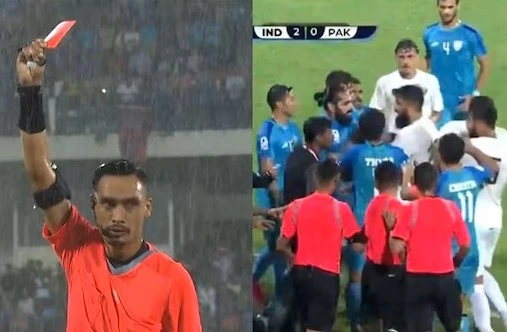Controversy Surrounds Head Coach Stimac’s Red Card
India’s 1-1 draw against Kuwait in their final group stage fixture of Group A was overshadowed by a contentious incident involving head coach Igor Stimac, who was shown a red card by the referee. The decision to send off Stimac has raised questions about the standard of refereeing and the impact it had on the game.
Assistant head coach Mahesh Gawli addressed the media after the match, expressing his dissatisfaction with the referee’s decision. Gawli emphasized the need for improved officiating, particularly in high-intensity matches where control is crucial. He stated that the standard of refereeing must be raised to avoid such controversial incidents that can have a significant impact on the outcome of games.
Gawli highlighted that the incident leading to Stimac’s red card was a simple conversation between a player and the coach. He claimed that the referee unjustly targeted Stimac, as the coach did not say anything inappropriate or deserving of a red card. The assistant coach’s statements suggest that the decision was harsh and lacked proper judgment.
The controversy surrounding Stimac’s red card has ignited a debate about the role of referees and the need for consistency and fairness in officiating. It raises concerns about the influence of referee decisions on the outcome of matches and the potential consequences for teams and their coaches.
The South Asian Football Federation (SAFF) must take note of this incident and consider ways to improve the standard of refereeing in their competitions. Fair and unbiased officiating is essential for maintaining the integrity of the game and ensuring that teams can compete on a level playing field.
Despite the controversy, India demonstrated resilience on the field and secured a valuable draw against Kuwait, which earned them a place in the tournament’s semifinals. The focus now shifts to the upcoming match against Lebanon, where the team will strive to put the distractions aside and give their best performance.
As the tournament progresses, the incident involving Stimac’s red card will serve as a reminder of the importance of fair refereeing and the impact it can have on teams and coaches. The SAFF, along with other football governing bodies, should continue working towards enhancing the standards of officiating to ensure a more balanced and transparent environment for all teams involved.











